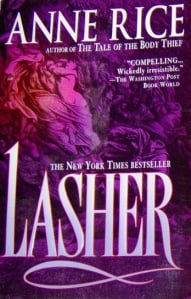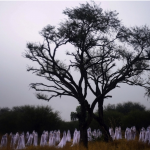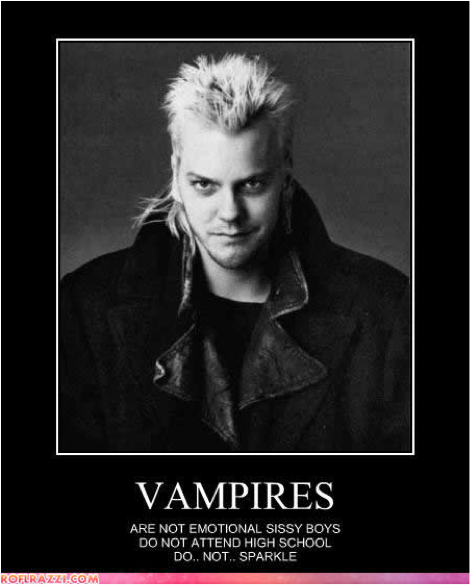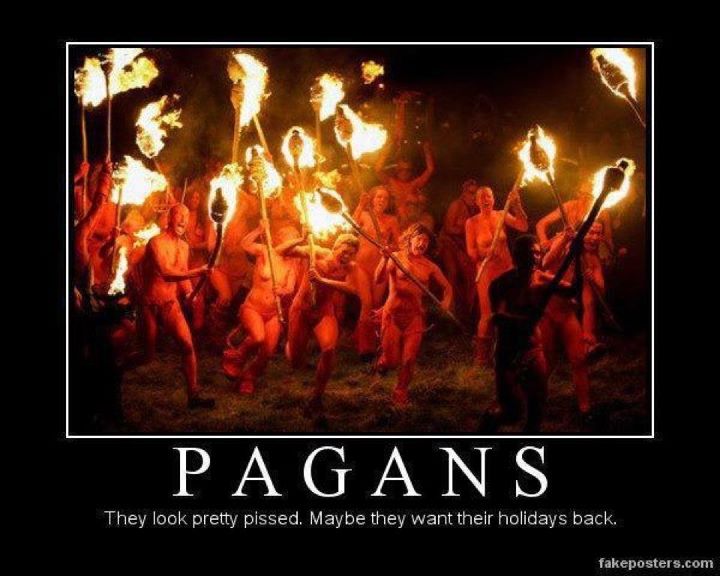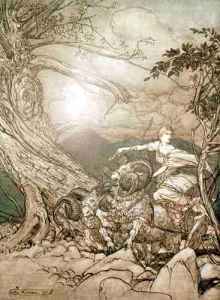Yesterday we had an amazing storm. The wind blew and blew, for hours. The rain fell, but did not pour, the whole time. This is unusual for where I live. Our storms are usually violent, but brief. Since we are nearing All Hallow’s Eve, my mind was naturally drawn to the legend of the Wild Hunt. I could imagine that the the Hunter had released the Wild Hunt yesterday and all manner of wild dark spirits were racing through the air in pursuit of lost souls.
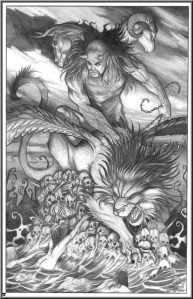
I’m going to try to combine my family’s mid-autumn Wheel of the Year ritual with Halloween this year. Many Neopagans celebrate this station of the Wheel as a kind of Day of the Dead, a day for communing with one’s ancestors. But I have come to feel that it is important to integrate the Wheel of the Year with existing popular rituals. For example, while I may prefer to celebrate the myth of the rebirth of the sun at the spring equinox, I think it would be a terrible missed opportunity to ignore the Pagan correspondences of Christmas. Similarly, I think it is a shame that many Neopagans and Witches try to turn All Hallows Eve — a day for honoring the dark aspects of the holy — into All Souls Day — a day for honoring the ancestors. I mean, here is a Pagan holiday ready-made for us. Why not embrace it?
I have a particular fondness for the Wild Hunt legend. When I first came to Neopaganism, and I was constructing my personal mythos from every readily available source, the first deity that I imagined was one I called the “Storm King”. I borrowed the name from an undead “Sithi” (Sidhe) ruler in Tad Williams’ trilogy Memory, Sorrow, and Thorn. I imagined my creation to be a cross between Michael Moorcock’s Elric and Anne Rice’s Lasher, a spirit named after the wind that “lashes the grasslands, that lashes the leaves from the trees”, like the wind that blew last night.
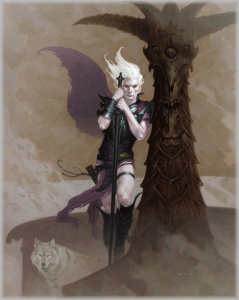
This mythological figure of my creation stood apart from the seasonal drama of the Oak King and the Holly King. He appeared unpredictably and disappeared just as unpredictably, just like a fit of rage.
At the time, I did not draw the connection between this character and my own psychological state, but it is quite obvious to me now. I had recently left the LDS Church and I was still raging against the perceived injustice of my situation. I was angry, so it made sense that the first Pagan god of my heart would be a wild god of sturm und drang. The Storm King was my way of honoring my anger.
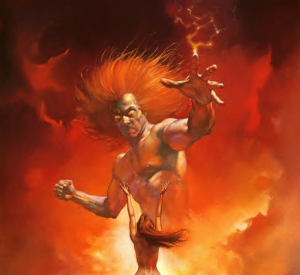
There is a certain irony in this. I conceptualized my rebellion against Christianity as a rebellion against the capricious, tribal deity of the Old Testament, Yahweh. Yahweh too was a god of the storm. So in a way, the Storm King was my unconscious reconceptualization of Yahweh.
When the wind would blow as the storm approached, I would call on the Storm King with these lines from Macbeth:
I conjure you, [come to me now]:
Though you untie the winds, and let them fight
Against the churches; though the yesty waves
Confound and swallow navigation up;
Though bladed corn be lodg’d, and trees blown down;
Though castles topple on their warders’ heads;
Though palaces and pyramids do slope
Their heads to their foundations; though the treasure
Of nature’s germins tumble all together,
Even till destruction sicken, [– come to me now].
But it was Herman Melville that gave me the words to make my peace (so to speak) with the Storm King. When I first read these words from Moby Dick, spoken by Ahab on the deck of his ship during a lightning storm, they resonated with me in such a way that I could hear the words as my own, spoken to the spirit of my own rage:
“Oh! thou clear spirit of clear fire, whom on these seas I as Persian once did worship, till in the sacramental act so burned by thee, that to this hour I bear the scar; I now know thee, thou clear spirit, and I now know that thy right worship is defiance. To neither love nor reverence wilt thou be kind; and e’en for hate thou canst but kill; and all are killed.
“No fearless fool now fronts thee. I own thy speechless, placeless power; but to the last gasp of my earthquake life will dispute unconditional, unintegral mastery in me. In the midst of the personified impersonal, a personality stands here. While I earthly live, the kingly personality lives in me, and feels his royal rights. Though thou launchest navies of full-freighted worlds, there’s that in here that still remains indifferent. Oh, thou clear spirit, of thy fire thou madest me, and like a true child of fire, I breathe it back to thee.
“I own thy speechless, placeless power. Thou canst blind; but I can then grope. Thou canst consume; but I can then be ashes. Light though thou be, thou leapest out of darkness; but I am darkness leaping out of light, leaping out of thee! Now I do glory in my genealogy. Thou art my fiery father.
“Oh, thou foundling fire, thou hermit immemorial, thou too hast thy incommunicable riddle. Leap! leap up, and lick the sky! I leap with thee; I burn with thee; would fain be welded with thee; defyingly I worship thee!”
With these words I challenged the “unintegral mastery” of the Storm King in my life. I reverence him. He has his place. But I am more than my anger. The fire of my anger could consume me, but I could rise from the ashes of that fire reborn.

